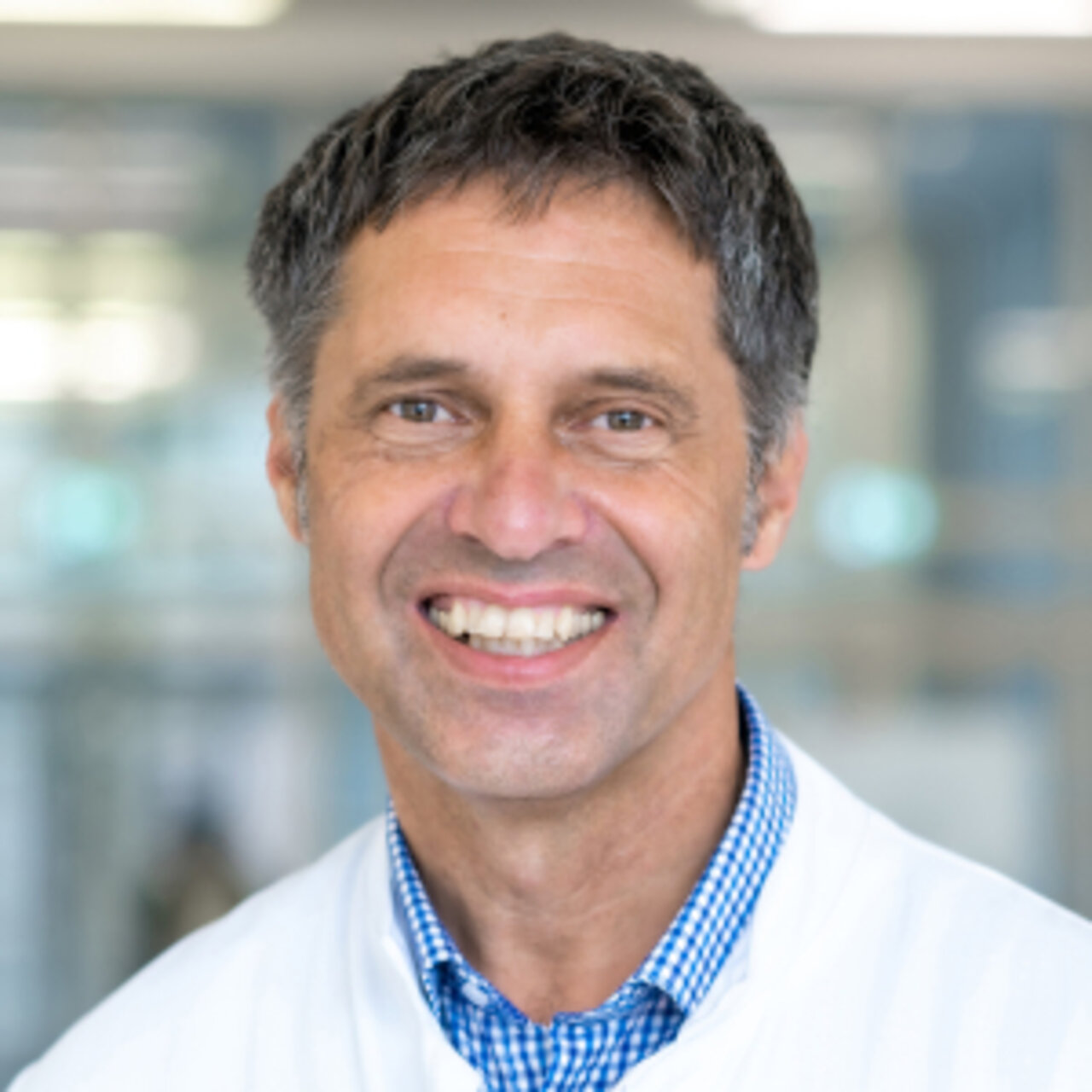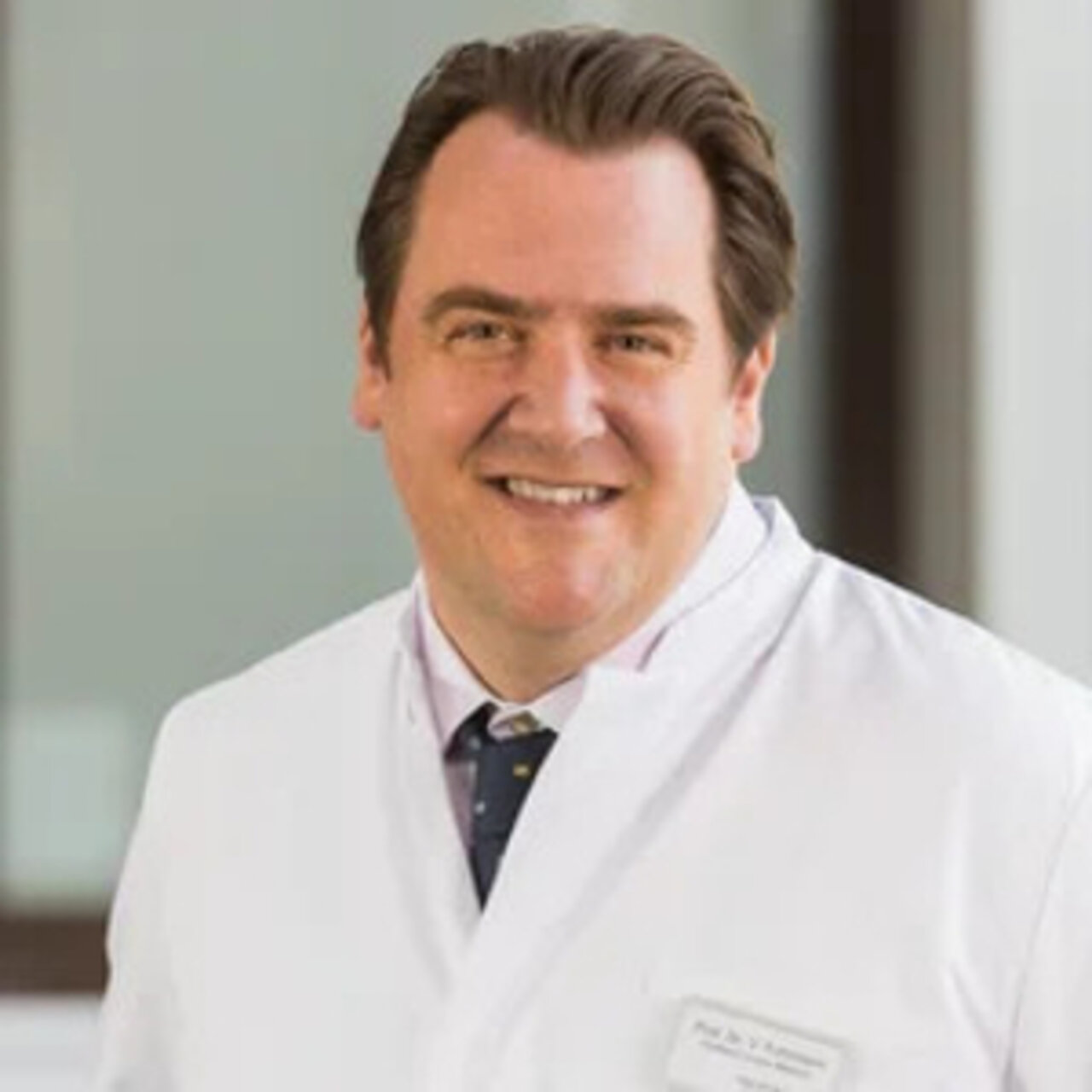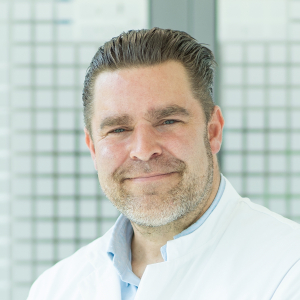Specialists in Colonoscopy
4 Specialists found
Information About the Field of Colonoscopy
What’s a colonoscopy?
The term colonoscopy is derived from the Latin word colon, meaning the large intestine, and the Greek verb skopein, meaning “to look” or “to examine”. Accordingly, a colonoscopy refers specifically to the examination of the large intestine, or colon.
The colon follows the small intestine and makes up the final section of the digestive tract. Therefore, it’s anatomical position makes it easily accessible for examination through the anal canal. During a standard colonoscopy, a flexible tube (endoscope) equipped with a camera and various channels for inserting small instruments, is advanced through the anal canal into the colon. This procedure allows direct visualization of the colonic mucosa and enables tissue sampling (biopsies) for diagnostic purposes. An endoscopic examination of the small intestine, called enteroscopy, is performed far less frequently and is technically much more complex.
Why is a colonoscopy performed?
There are various reasons for performing an endoscopy. If a patient experiences symptoms such as persistent diarrhea, abdominal pain or blood in the stool, a physician might recommend a colonoscopy. Similarly, a colonoscopy may be advisable in individuals with a family history of intestinal diseases that are associated with the development of polyps (small protrusions of the mucosa).
However, colonoscopies are most commonly carried out as a preventative measure. In Germany, individuals aged 55 or older are offered a prophylactic colonoscopy every 10 years, which is covered by statutory health insurance. This is part of the national cancer screening program. Colorectal cancer is one of the most common cancers in Germany and when detected early, it is highly treatable.
Which intestinal conditions can be detected by a colonoscopy?
Colon cancer and its precursors (precancerous lesions) represent a particularly important group of conditions that can be detected, and in the case of precancerous lesions, also removed during a colonoscopy.
Additionally, a wide spectrum of inflammatory bowel diseases (IBD) can be diagnosed through this procedure. These primarily include chronic conditions such as Crohn’s disease and ulcerative colitis. A definitive diagnosis of these conditions can only be confirmed through microscopic examination of tissue samples (biopsies) obtained during a colonoscopy. Other inflammatory conditions, such as diverticulitis (inflammation of mucosal outpouchings called diverticula) can also be identified.
Moreover, colonoscopy plays a crucial role in ruling out serious underlying conditions in patients presenting with IBS-like symptoms.
An urgent or emergency colonoscopy may be indicated in the case of acute lower gastrointestinal bleeding or following the ingestion of foreign bodies must not be allowed to pass spontaneously. These include sharp objects, batteries or magnets, all of which carry a high risk of injury or toxicity.
How to prepare for a colonoscopy
Prior to a colonoscopy, the colon must be thoroughly cleansed to ensure optimal visualization of the intestinal mucosa by the examining physician. To aid this process, it is recommended to avoid foods containing seeds or grains for at least three days before the procedure. This includes fruits with small seed such as strawberries and raspberries. On the day before the examination, it is recommended to only consume low-fiber, easily digestible foods, such as yogurt or toast.
Twelve hours prior to the colonoscopy, typically the evening before, a laxative is taken. From this point onwards, food intake should be refrained from, but sufficient fluid intake is essential to prevent dehydration, as the laxative induces repeated episodes of watery stools over several hours to fully cleanse the bowel.
If medications are being taken that are absorbed via the gastrointestinal tract, their absorption may be impaired due to the laxative’s effect. This also applies to oral contraceptives, whose effectiveness may be compromised. Therefore, women relying on oral contraception are advised to use additional barrier methods, such as condoms, for the remainder of the cycle. Individuals who are taking essential medications, such as certain cardiac medications, should consult their physician well in advance.
As the procedure carries a small risk of mucosal injury and subsequent bleeding, temporary discontinuation of blood thinning medications (anticoagulants or antiplatelet agents) may be necessary. This decision must also be made in consultation with the treating physician.
The belief that one should not shower before a colonoscopy is a myth without any scientific or medical basis.
Procedure and duration: What happens during a colonoscopy?
A colonoscopy is typically performed as an outpatient procedure, which does not require hospitalization. In most cases, general anesthesia is not necessary. Instead, the procedure is commonly performed under conscious sedation, which induces a sleep-like, twilight state, perceived similarly to general anesthesia. The procedure itself is not painful.
The examination lasts approximately 30 minutes, during which the patient lies on their side. The physician inserts the flexible tube (colonoscope), lubricated with gel, through the anal canal and advances it to the end of the colon. To improve visibility, a small amount of air is introduced into the colon. The colonoscope is then slowly withdrawn while the mucosa is thoroughly examined by the physician. If any abnormalities are detected, tissue samples (biopsies) are collected.
Small polyps, which have the potential to develop into colorectal cancer can be removed during the procedure using a snare that is passed through the scope. These samples are subsequently analyzed under a microscope to ensure that they are benign. If a tumor is found that cannot be removed endoscopically, typically due to its size or shape, surgical intervention may be required.
After the procedure, patients are monitored for a short period until the effects of the sedative wear off. Patients can usually go home the same day, but because of the sedative, they should avoid driving and make arrangements for someone be pick them up and stay with them during recovery.
Risks & side effects: what complications can occur during a colonoscopy?
Colonoscopies are well-established, low-risk procedures. In very rare cases, complications such as bleeding or even perforation (puncture) of the colon by the instrument can occur. Additionally, the administration of sedatives may, in some cases, lead to cardiovascular events or allergic reactions. Your individual risk profile will be thoroughly discussed with you by your physician prior to the procedure.
Aftercare: What should be considered after a colonoscopy?
If no abnormalities are detected during the colonoscopy, no specific aftercare is required. However, due to the residual effects of the sedative agent, patients should refrain from operating heavy machinery or driving for at least 24 hours. Some individuals may experience bloating due to the air introduced into the colon during the procedure, and the residual effects of the laxative may lead to temporary loose stools. Should you experience any pain, dizziness, nausea, or notice blood in your stool following the procedure, it is essential to seek immediate medical attention. Unless otherwise advices, normal eating can be resumed right after the colonoscopy.
Which physicians and specialists perform colonoscopies?
Colonoscopies are performed by specialists in internal medicine, specifically those with a subspecialty training in gastroenterology. The procedure can be performed in either a private practice or as an outpatient procedure in a hospital.
When looking for a physician, many patients understandably want the best possible medical care. This raises the question: Where can I find the best clinic for me? This question cannot be answered objectively, since any reputable physician would never claim to be the best, one can only rely solely on the experience of a doctor.
We help you find an expert for your condition. All listed physicians and clinics have been reviewed for their outstanding specialization in the field of fatty liver disease and are available for your inquiry or treatment request.




